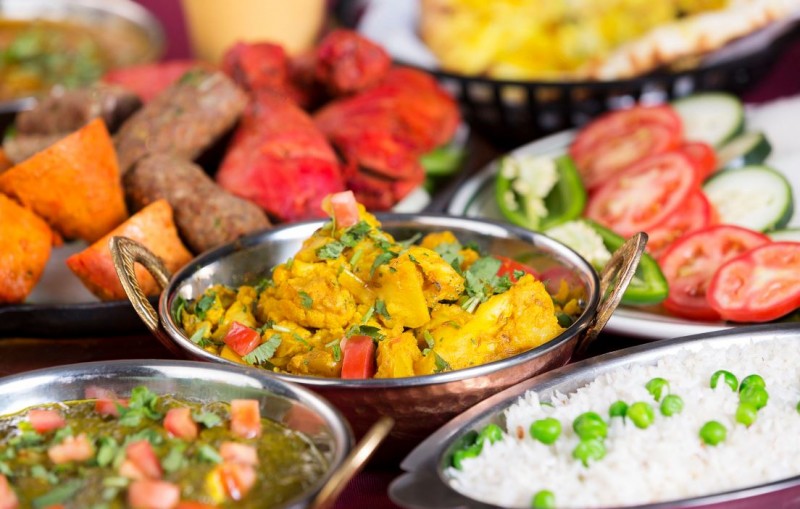
Introduction
Indian cuisine is renowned worldwide for its rich flavors, diverse ingredients, and unique cooking techniques. The food culture in India is deeply rooted in traditions, regional diversity, and a love for spices. This article explores the vibrant tapestry of Indian cuisine, highlighting its distinct features, popular dishes, and the cultural significance of food in India.
1. Overview of Indian Cuisine
Indian cuisine is a reflection of the country's diverse culture, history, and geographical influences. It encompasses a wide range of flavors, ingredients, and cooking styles. The cuisine varies significantly from one region to another, offering a delightful culinary journey for food enthusiasts.
2. Regional Varieties of Indian Food
India is a land of culinary diversity, with each region showcasing its unique flavors and culinary traditions. From the rich gravies of North Indian cuisine to the tangy and spicy dishes of South India, the country offers an extensive variety of regional delicacies.
3. Spices and Flavors in Indian Cooking
Spices play a crucial role in Indian cooking, adding depth, aroma, and distinct flavors to dishes. Commonly used spices include cumin, coriander, turmeric, cardamom, and cinnamon. The careful blend of spices creates a symphony of flavors that tantalizes the taste buds.
4. Traditional Indian Cooking Techniques
Indian cooking techniques are diverse and often labor-intensive, reflecting the country's ancient culinary traditions. Some popular methods include tandoori (clay oven) cooking, tempering (seasoning spices in hot oil), and slow cooking to enhance flavors.
5. Famous Indian Dishes
Indian cuisine boasts an array of mouth-watering dishes that have gained international recognition. From the creamy butter chicken and aromatic biryanis to the versatile dosas and flavorful curries, each dish offers a unique experience and showcases the culinary expertise of Indian chefs.
6. Vegetarian and Vegan Options
India has a long-standing tradition of vegetarianism, and many Indian dishes are inherently plant-based. From lentil-based dal to vegetable curries and refreshing salads, the country offers a wide range of vegetarian and vegan options that are both nutritious and flavorful.
7. Street Food Culture in India
The vibrant street food culture in India is a testament to the country's love for quick, delicious bites. Street stalls and food carts offer a plethora of mouth-watering snacks like samosas, chaats, vada pav, and golgappas, allowing locals and tourists to savor the authentic flavors of Indian street food.
8. Festivals and Food in India
Indian festivals are synonymous with feasting and celebration. During festivals like Diwali, Eid, and Christmas, families come together to prepare traditional sweets, snacks, and lavish meals. These festive delicacies highlight the cultural significance of food in India.
9. The Influence of Indian Cuisine Worldwide
Indian cuisine has made a significant impact on global gastronomy. Indian restaurants can be found in almost every corner of the world, offering people the chance to indulge in the exotic flavors of India. The popularity of dishes like curry and tandoori chicken has helped Indian cuisine gain international recognition.
10. Health Benefits of Indian Food
The diverse range of ingredients used in Indian cooking provides numerous health benefits. Many Indian spices have antioxidant and anti-inflammatory properties, while the emphasis on vegetables, legumes, and whole grains promotes a balanced diet. The use of Ayurvedic principles in cooking further enhances the health benefits of Indian food.
11. Modern Innovations in Indian Cuisine
Contemporary Indian chefs are pushing the boundaries of traditional cuisine, blending global influences with local ingredients. Fusion dishes, molecular gastronomy techniques, and creative plating are transforming Indian food into a modern culinary experience.
12. Sustainability in Indian Food Practices
Sustainability is gaining momentum in Indian food practices. Organic farming, farm-to-table initiatives, and awareness about responsible seafood consumption are some of the efforts being made to promote sustainable food production and reduce the carbon footprint of the Indian food industry.
13. The Future of Indian Cuisine
Indian cuisine continues to evolve while staying true to its roots. As globalization expands culinary horizons, Indian chefs and food enthusiasts are experimenting with new flavors, techniques, and food combinations. The future of Indian cuisine holds exciting possibilities, blending tradition with innovation.
Conclusion
Indian cuisine is a treasure trove of flavors, traditions, and cultural diversity. From the aromatic spices to the vibrant colors on the plate, every aspect of Indian food tells a story. Whether you savor the rich curries, indulge in street food delights, or explore the vegetarian wonders, Indian cuisine promises a gastronomic adventure like no other.
Foodie Travel: Indulging in Culinary Delights and Local Gastronomy
The benefits of exploring local cuisines while traveling
Celebrating National Sugar Cookie Day: A Delightful Treat for All